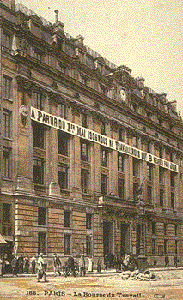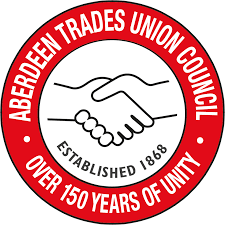Related Research Articles

James Larkin, sometimes known as Jim Larkin or Big Jim, was an Irish republican, socialist and trade union leader. He was one of the founders of the Irish Labour Party along with James Connolly and William O'Brien, and later the founder of the Irish Worker League, as well as the Irish Transport and General Workers' Union (ITGWU) and the Workers' Union of Ireland. Along with Connolly and Jack White, he was also a founder of the Irish Citizen Army. Larkin was a leading figure in the Syndicalist movement.
The National Labour Party was an Irish political party active between 1944 and 1950. It was founded in 1944 from a rebel faction of the Labour Party, inspired by the intransigence of the incumbent leadership of the Irish Transport and General Workers' Union (ITGWU) against the majority of the party on the basis that communists had infiltrated Labour at the turn of the 1940s.

The Irish Transport and General Workers Union (ITGWU), was a trade union representing workers, initially mainly labourers, in Ireland.
The Limerick Soviet was one of a number of self-declared Irish soviets that were formed around Ireland circa 1919. The Limerick Soviet existed for a two-week period from 15 to 27 April 1919. At the beginning of the Irish War of Independence, a general strike was organised by the Limerick Trades and Labour Council, as a protest against the British Army's declaration of a "Special Military Area" under the Defence of the Realm Act, which covered most of Limerick city and a part of the county. The soviet ran the city for the period, printed its own money and organised the supply of food. The Limerick Soviet was one of a number of Irish soviets declared between 1919 and 1923.

William O'Brien was a politician and trade unionist in Ireland. While rarely dominating the political spotlight, O'Brien was incredibly powerful and influential behind the scenes, maintaining a firm grip over Ireland's trade unions for many decades. Besides his leadership in the trade unions, O'Brien was a founder, alongside James Larkin and James Connolly, of the Labour Party of Ireland. In later years a rift formed between Larkin and O'Brien that would last the rest of their lives and often divide the labour movement in Ireland.

The Republican Congress was an Irish republican and Marxist-Leninist political organisation founded in 1934, when pro-communist republicans left the Anti-Treaty Irish Republican Army. The Congress was led by such anti-Treaty veterans as Peadar O'Donnell, Frank Ryan and George Gilmore. In their later phase they were involved with the Communist International and International Brigades paramilitary; the Connolly Column.

The Irish Land and Labour Association (ILLA) was a progressive movement founded in the early 1890s in Munster, Ireland, to organise and pursue political agitation for small tenant farmers' and rural labourers' rights. Its branches also spread into Connacht. The ILLA was known under different names—Land and Labour Association (LLA) or League (LLL). Its branches were active for almost thirty years, and had considerable success in propagating labour ideals before their traditions became the basis for the new labour and trade unions movements, with which they gradually amalgamated.
The Labour Party has been part of the political scene in Ireland throughout the state's existence. Although never attracting majority support, it has repeatedly participated in coalition governments. The party was established in 1912 by James Connolly, James Larkin, and William O'Brien and others as the political wing of the Irish Trades Union Congress. It intended to participate in a Dublin Parliament that would follow passage of the Home Rule Act 1914, which was suspended on the outbreak of World War I. Connolly was executed following the Easter Rising in 1916, and was succeeded as leader by Thomas Johnson. The party stood aside from the elections of 1918 and 1921, but despite divisions over acceptance of the Anglo-Irish Treaty it took approximately 20% of the vote in the 1922 elections, initially forming the main opposition party in the Dáil Éireann (parliament) of the Irish Free State. Farm labourers already influenced by D.D. Sheehan's Irish Land and Labour Association (ILLA) factions were absorbed into urban-based unions, which contributed significantly to the expansion of the Irish trade union movement after the First World War. For much of the 20th century, the Irish Labour Party derived the majority of its Dáil strength from TDs who were relatively un-ideological and independent-minded, and were supported by agricultural labourers.
The League for a Workers' Republic (LWR) was a Trotskyist organisation in Ireland.
The Workers' Union of Ireland (WUI), later the Federated Workers' Union of Ireland, was an Irish trade union formed in 1924. In 1990, it merged with the Irish Transport and General Workers Union to form the Services, Industrial, Professional and Technical Union (SIPTU).

The Bourse du Travail, a French form of the labour council, were working class organizations that encouraged mutual aid, education, and self-organization amongst their members in the late nineteenth and early twentieth centuries.

The Sheffield Trades and Labour Council, usually known as the Sheffield Trades Council, is a labour organisation uniting trade unionists in Sheffield.

Anarchism in Ireland has its roots in the stateless organisation of the túatha in Gaelic Ireland. It first began to emerge from the libertarian socialist tendencies within the Irish republican movement, with anarchist individuals and organisations sprouting out of the resurgent socialist movement during the 1880s, particularly gaining prominence during the time of the Dublin Socialist League.

The Irish Trades Union Congress (ITUC) was a union federation covering the island of Ireland.
Thomas Farren was an Irish Labour Party politician and trade union official. He was a member of the Stonecutters' Union of Ireland and served as the president of the Irish Trades Union Congress in 1920.

Patrick Thomas Daly, known as P. T. Daly was an Irish trade unionist and politician.
The Building and Allied Trades' Union (BATU) is a trade union representing workers in the construction industry and furniture trade in Ireland.
Belfast Trades Council, also known as Belfast & District Trades Union Council, brings together trade unionists in and around Belfast in Northern Ireland.

Aberdeen Trades Union Council (ATUC) is the body made up of affiliated trade union branches and organisations working in the Aberdeen and Aberdeenshire area to promote the interests of workers in the region. The ATUC provides services to affiliated branches on a wide range of industrial, social and community issues and is affiliated to the STUC. It has an office based in Aberdeen, Scotland.
The Notts Trades Council, formally known as the Nottinghamshire Nottingham and Mansfield Trades Council, brings together trade unionists in Nottinghamshire, in England.
References
- 1 2 "The Dublin Council of Trade Unions", AP/RN, 27 February 1986
- ↑ Alan Clinton, The Trade Union Rank and File: Trades Councils in Britain, 1900-40, p.101
- ↑ Emmett O'Connor, "Syndicalism, Industrial Unionism and Nationalism in Ireland", in ed. Steven Hirsch and Lucien van der Walt, Anarchism and Syndicalism in the Colonial and Postcolonial World, pp.219-220
- ↑ Peter Barberis et al, Encyclopedia of British and Irish Political Organizations, p.734
- ↑ Arthur Mitchell, Labour in Irish politics, 1890-1930, p.189